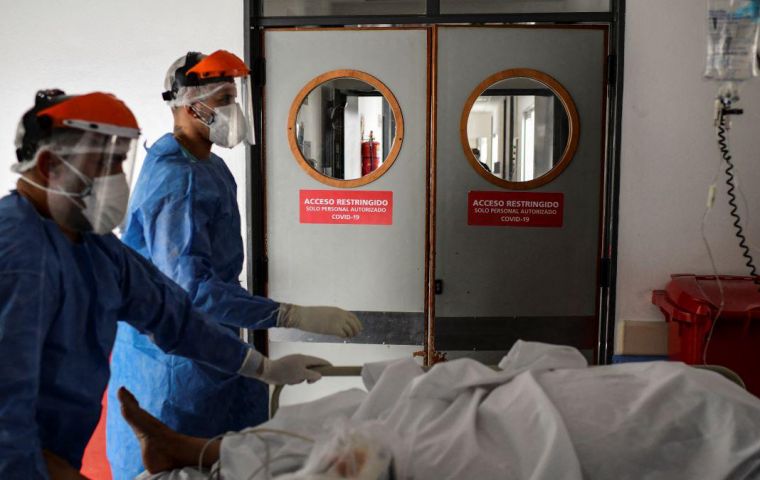MercoPress. South Atlantic News Agency
Argentina records first “black fungus” death
 Mucormycosis is not a new disease and is not only related to diabetic patients
Mucormycosis is not a new disease and is not only related to diabetic patients A 35-year-old man who had had coronavirus and medical history of diabetes has been recorded as Argentina's first death caused by “black fungus,” it was announced Friday.
The patient, who died in the last weeks of May, had been hospitalized in Lomas de Zamora, a suburb outside the Autonomous City of Buenos Aires (CABA).
Commonly known as “black fungus,” the disease is called mucormycosis and attacks those who suffer or have suffered from coronavirus.
Friday's announcement was made by María Luján Cuestas, director of the Laboratory for Research and Development in Mycology (LIDeMi) of Imam, and a member of the Mycology Center of the School of Medicine and Argentina's scientific agency Conicet.
This is a 35-year-old man who had had coronavirus, with a history of diabetes, who remained hospitalized at a clinic in Lomas de Zamora and who died in the last weeks of May, but his death was reported this afternoon.
However, the researcher told the C5N news channel that there may be more cases because mucormycosis is not notifiable.
In India, more than 9,000 patients were diagnosed with a fungal infection popularly known as “black fungus”, most of whom suffered from uncontrolled diabetes.
After India, isolated patients were detected in Uruguay, the United States, Brazil, Mexico, Spain, Italy, Austria and Iran. In Argentina, at least three cases were recorded.
Scientists warn that it is important to become aware of fungal coinfection in patients with covid-19 and focus on whether or not there is the previous comorbidity to make a faster diagnosis and use adequate antifungal treatment.
The black fungus penetrates the blood vessels and can cause necrosis or tissue death - hence the identification as black, due to the effect it leaves on the skin - affecting the paranasal sinuses, the orbital region and even the brain
Mucormycosis is not a new disease and is not only related to diabetic patients who enter ketoacidosis (high levels of acidity in the blood), but also to those who present some type of immunosuppression, such as those who have cancer under treatment with chemotherapy, with autoimmune diseases or who suffered severe burns.




Top Comments
Disclaimer & comment rulesCommenting for this story is now closed.
If you have a Facebook account, become a fan and comment on our Facebook Page!